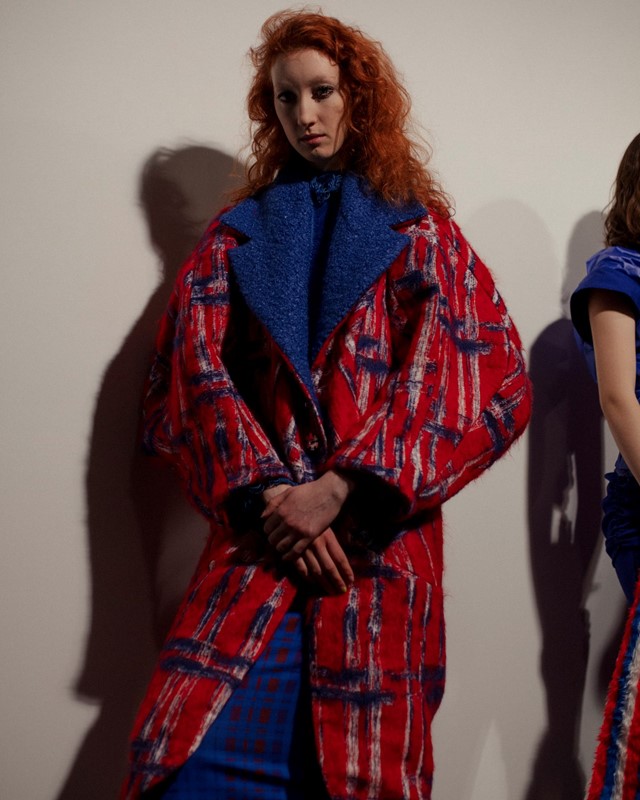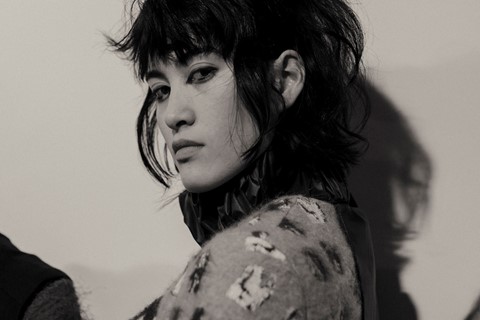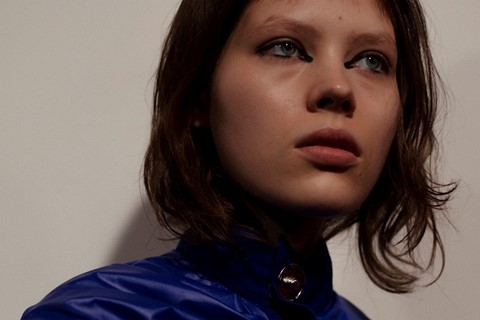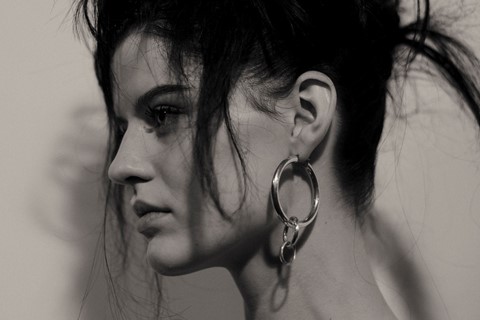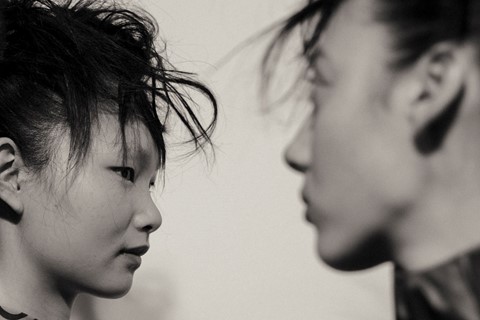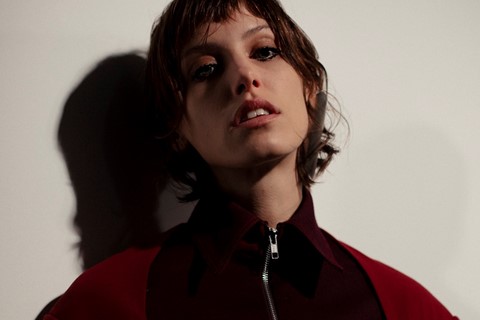The designer returned to his adolescence in Ireland for a collection that explored dressing up across generations
Though he now lives and works in London, the home of Richard Malone’s collections more often recall an adolescence spent in County Wexford, Ireland, where he was born. An exhibition on his working process at Greenwich’s NOW Gallery late last year documented just this: among vast sculptural gowns suspended from the ceiling, display cases were filled with family photographs and childhood trinkets, including those borrowed from his beloved grandmother Nellie. They are the shards of inspiration which set his collections in motion, and make his clothing deeply personal.
This morning, Malone showed his Autumn/Winter 2019 collection among an Amy Stickland-designed set, catered for a party – plastic bottles of fizzy drinks, plates of pink wafers and cocktail stick-skewered sausage rolls sat on tables among silver streamers and discarded balloons. “Central to the designer’s practice is the creation of a set within which to stage his craft,” read the accompanying notes. “The show takes us to an almost-uncomfortable, nearly bleak living room in which a family birthday party sees ‘dressing up’ interpreted across generations.” It was an idea which germinated from a photograph he found of his brother, then a young child, at one such party. In it, he sits smiling in the foreground, among a gathering of bored-looking grown-ups.
It got Malone thinking about children, and the way they dress – in the collection, “fuzzy” and “cuddly” fabrics, including one “fun fur” made entirely from repurposed dog beds, made for exuberantly coloured stoles, gloves and bags (“the optimistic brights of street party flags”); while twisting psychedelic prints, checks and spontaneous smears of paint were assembled across clothing with childhood abandon. As opposition, a series of garments evoked a sense of grown-up proprietry: broad-shouldered suiting, brushed-mohair outerwear and lipstick-coloured party dresses among them, the latter of which ruched and gathered around the body via a series of toggle fastenings. Laddered-knit jumpers, and frayed silks – fabrics which took days at a time to make – once again demonstrated Malone’s dedication to craft, and the hand-made (several of these labour-intensive pieces will be reserved for a roster of private clients, many of whom work in the art world).
Here, in a conversation with AnOther which took place prior to the show, Malone explains the roots of this latest collection, in his own words.
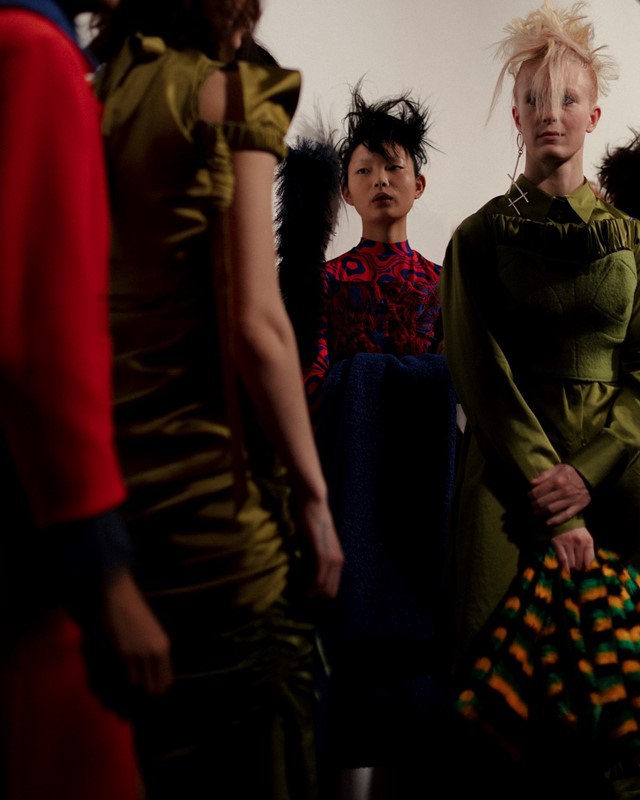
“The starting point of the collection was a single image that I had of my brother at a party when we were younger, with my parents and their friends in the background looking extremely bored. That kind of mood. We grew up and lived on an estate of houses that were all in a row so whenever there was a party everyone would go there. So it was this huge effort of the whole street getting together. There was a weird formality to those parties – there would be weird clothes, and like, a washing line in the kitchen where they’d put loads of underwear, and then me not understanding all these bras and stuff. The parents were getting hammered and pretending they were being responsible.
“This would have been around 1996. There are pictures of my parents and my mum is wearing a Primark mohair thing and it’s borderline punk but also really mumsy, with a really mumsy texture. I almost think of my mum when people say the word punk now; my parents were really punky. When most people think about punk, they think about the image references. It isn’t about an actual punk, it’s about a series of images that makes you think of punk. It’s almost forced.
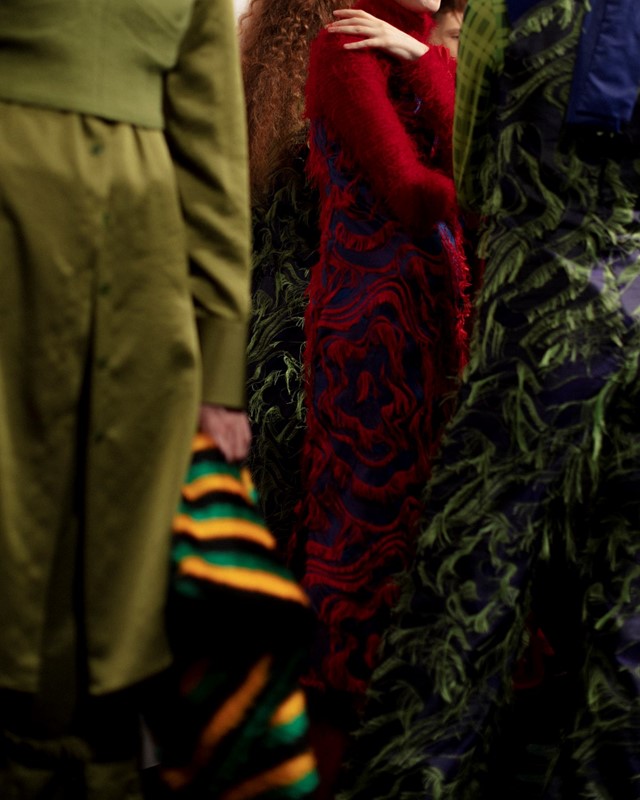
“I think that idea of punk or rebellion can be found in the way children dress; the sense of colour that kids have. There’s nothing black. I don’t own anything black. Any clothes that are black. I don’t like it. I can’t write with a black pen. I find the way people wear black in fashion really interesting as an outsider; I didn’t grow up seeing people wearing a fashion black. I find it interesting that people adopt it and are willing to change. I think when you’re a child you believe so much in colours and they’re so instinctive.
“I was never informed of ‘good’ taste or ‘bad’ taste growing up so I think I still have this weird thing with colours; the colours I put together are jarring, or they’re gross, or untraditional in some way. I guess that’s because of all of those codes that I grew up around. Where I’m from, there’s such a lack of vanity in the way people dress – I find that when I go home, or go to those little towns, the way people dress is really endearing and they just don’t care about fashion. But if you took that and put it in a context like London which is a city, I guess it becomes out of place and people judge it because people are judging it against their idea of what is tasteful. That’s definitely in the story that we’re creating this season. It’s quite fun.”
